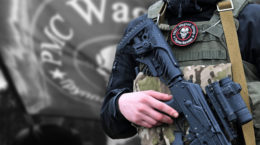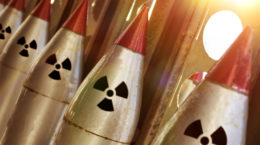The situation with the “March of Justice” of Yevgeny Prigozhin has taught us some lessons that we have yet to comprehend.
Here we would like to list some of them:
1) Vladimir Putin lives in his own reality, but that’s just part of the trouble. The real trouble is that he is actively changing our own reality to fit his. He is changing the values of the society in our region, changing the attitude to violence and even worse: he is changing the way people see democracy and the concept of human rights. I am concerned that nobody is paying attention to the direction the public opinion in our region is taking. People get accustomed to cruelty as a new social norm in formal and informal relationships.
2) Yevgeny Prigozhin could have taken Moscow; can the Ukrainian army take it as easily? Unfortunately, no. The reaction of the Russian society to Prigozhin and to the Wagner Group was as to liberators and national heroes who were going to get justice and liberate the Russian nation from corrupt officials. Justice is a very important concept for the Russian mentality. That is why Prigozhin would have been able to come and take Moscow in a day. Nevertheless, the Ukrainian army should not relax, as it won’t be as easy for them: the level of resistance will be completely different.
3) Yevgeny Prigozhin started his “March of Justice” hoping to make cosmetic repairs and resolve his personal problems, not to demolish the system. Actually, Mikhail Gorbachev had started something similar with his “Perestroika”: he did not want to arrive to a collapse of the Soviet Union, just to introduce changes into the system. Nevertheless, he did arrive there. That is why, Vladimir Putin compared Prigozhin with Vladimir Lenin, thus, giving him a very clear signal: are you really ready to break the whole system down in a revolutionary manner? Prigozhin heard Putin’s message, thought it over, decided he was not morally ready for that and retreated. However, the reaction of the Russian society showed that the Russians are waiting for the new “Vladimir Lenin” who can overthrow the “Tsar” Putin, probably, even by “regicide”.
4) We’d like to draw your attention to the fact that Putin’s propaganda has always and everywhere underlined that Vladimir Putin is Russia, and there is no alternative to him, he has always been seen as the Russian “Tsar”. Now a column of Russian tanks is marching on Moscow (and everybody sees it as against Putin) on ordinary roads, through major cities and capitals of federal regions. Notice that there was not even one significant resistance of people organized against it. Quite on the contrary, there was universal rejoicing, the Wagner mercenaries were met with flowers and just sometimes gently scolded for damaged asphalt. No young people came to the barricades of Moscow to defend Putin. Nobody made even one attempt to cut a throat of at least one Wagner mercenary from around a corner. There were no people’s pickets against the person declared an enemy, traitor and mutineer by the “Tsar”.
5) Failed take-overs usually strengthen the positions of the acting dictator and prolong his term in power. Therefore, it should be admitted that Putin has strengthened his position, and not weakened it. We should be ready for a new wave of crackdown in Russia, as Vladimir Putin has seen with his own eyes how fragile his power is: therefore, the efforts taken to identify and punish internal enemies should be expected to strengthen. Although Prigozhin did not want to demolish the whole system and was not morally ready to eliminate Putin and take his throne, nevertheless, his actions have seriously weakened the political construct of the existing system of rule.
6) The conflict between Prigozhin and the system has completely destroyed the best trump card of the Putin propaganda for the Russian society: the idea of his rule as being an era of “stability”, predictability and, most importantly, security. Currently, there is no one person in our region who feels him or herself safe. It means that the risks of making any political decisions dictated by the feeling of danger (not important whether real or imaginary) are growing, and therefore, the already existing political turbulence in the region is going to increase, too.
7) The biggest and most painful question which has remained open for the Russian society is the death of the 13 pilots who were trying to stop Prigozhin’s march on Moscow. Although Prigozhin promised to pay 50 million of Russian rubles as compensations for the loss, the Russian society has remained discontented that it is possible to buy a way out of the punishment after committing aggravated criminal offences. In our opinion, the issue of social justice and social inequality in Russia will only grow, and the perished pilots will be one of the serious triggers for the Russian society.
8) After Prigozhin’s mutiny, not only the space for women and the LGBT has narrowed, also the space for a peaceful civil society leader’s coming into power has drastically been reduced. Currently, a fight between those leaders, who are demonstrating readiness to commit violence and have an experience of violence and murder, is going on. Right now, there is no space for democratic leaders to seize power or to change the narrative; and if we allow that space to narrow even more, there will be no such opportunity in future as well.
9) Yevgeny Prigozhin made a deal with Vladimir Putin. What does it mean for him and for us?
- With his deal he has “bitched out”, that is, in the eyes of the Russian society he has killed himself as a national hero and a leader: he had conjured up images of himself as of a criminal kingpin challenging the system, and such people never negotiate with the system, the more so, with the Cheka officials (even former ones), but he did. Wagner is going to cease to exist as a brand, and Prigozhin already has as the national leader and a politician. In such kind of revolutions, the rebellious group either goes to the end and wins, or stops and loses. There is no middle ground.
- Vladimir Putin gave his word to Prigozhin, but he is not obliged to keep it, as he has never conjured up images of himself as of a criminal kingpin. Nobody is going to get infuriated that Putin deceived a thug to keep power in case he does so. Therefore, Putin’s authority as that of a person who has been capable to remain in power is going to grow.
- If Prigozhin wants to remain in Putin’s magazine, he must invent some “creative” idea that only he, and no one else, is capable to implement, in order to demonstrate his profitableness for Putin. We are skeptical and we do not think it is going to be Africa. Quite on the contrary, we believe Prigozhin is going to carry out provocations in our region. As the experience shows, Russians know very well how to build multi-step combinations, therefore, we should expect them to take some highly non-standard steps. If Prigozhin does not prove his profitableness and usefulness to Putin, then he is going to be killed in the near future: either by Putin’s killers, or by his own former inmates, whom he has deceived and whose rules of the criminal world he has broken.
Why Belarus? Prigozhin is bound by some joint shady affairs with Viktar Sheiman, the bloodiest man from Lukashenka’s inner circle, who organized murders of opposition leaders and journalists, and disgraced himself in very dirty schemes of the Lukashenka family. It is Sheiman who stands behind the first private military company in Belarus. The company GardService is the first Belarusian private security agency permitted to carry and use firearms by a special order of Lukashenka. It is important to note that GardService is connected with the organization of former Belarusian soldiers in Afghanistan, which also under the auspices of Sheiman.
We believe it is Viktar Sheiman who initiated the “transit” of Prigozhin and Wagner to Belarus. A particular concern is that Prigozhin is speaking about some “legal framework” for the Wagner Group to act in, which for us sounds as oxymoron. Most probably, it means the former Wagner, who has discredited itself in the eyes of former inmates, is going to be transformed into the new Belarusian brand – GrandService.
Once again, we are returning to processes (gestalts) that did not gain closure and were not solved in the Soviet times, like the war in Afghanistan, for example, and to transgenerational traumas that our society endured during the times of the USSR, GULAG and Stalin’s reprisals.










